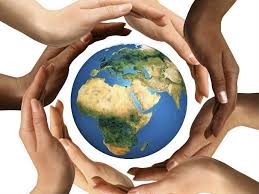Understanding Its Value in a Complex World

The Importance of Peace: Building a Harmonious and Sustainable Future
Peace is more than the absence of war—it is a state of harmony that enables societies to flourish, individuals to live without fear, and nations to focus on progress rather than conflict. Yet, in a world marked by constant turmoil, the pursuit of peace often feels like an elusive goal. This article explores the importance of peace, the challenges of achieving it, and why every individual, community, and government should prioritize it.
Why Is Peace Important?
The Role of Peace in Global Stability
Peace is the foundation upon which stable societies are built. In its presence, economies thrive, educational opportunities expand, and human rights are respected. Without peace, countries face challenges such as poverty, displacement, and environmental degradation.
Peace Promotes Economic Growth
When peace prevails, nations can allocate resources toward development instead of conflict. Research shows that countries with prolonged peace experience higher GDP growth, improved infrastructure, and greater foreign investment.
Peace Improves Quality of Life
Peaceful societies tend to have better access to healthcare, education, and social services. People living in such environments are less likely to suffer from stress and trauma, leading to longer, healthier lives.
The Barriers to Peace
Despite its importance, achieving peace is often fraught with challenges. These barriers include political instability, inequality, and environmental crises.
Political Instability and Conflicts
Power struggles, corruption, and unresolved grievances frequently lead to wars and civil unrest. For example, conflicts in regions like the Middle East or sub-Saharan Africa often arise from political tensions that spiral into violence.

Inequality as a Catalyst for Unrest
Economic and social inequality creates divisions within societies, fueling resentment and unrest. Marginalized communities are more likely to experience violence and discrimination, further perpetuating cycles of instability.
Environmental Challenges and Conflict
Climate change has become an emerging driver of conflict. Scarcity of natural resources like water and arable land intensifies tensions, especially in vulnerable regions. For instance, disputes over water access have exacerbated conflicts in areas such as Sudan and Syria.
Who Is Responsible for Peace?
Creating and maintaining peace is a shared responsibility. It requires efforts from governments, communities, and individuals alike.
The Role of Governments
Governments play a pivotal role in fostering peace by:
- Enforcing fair laws and justice systems.
- Investing in diplomacy to resolve international disputes.
- Supporting education to promote tolerance and understanding.
Community Efforts Toward Peace
Communities can foster peace by promoting inclusivity and resolving local disputes before they escalate. Grassroots organizations often work to mediate conflicts, support victims, and rebuild trust among groups.

Individual Contributions to Peace
Every person has a role in promoting peace, from speaking out against injustice to practicing empathy in daily interactions. Small actions, such as volunteering, donating to humanitarian causes, or educating oneself about global issues, can collectively make a significant impact.
Peace and Its Connection to Sustainability
Sustainable development and peace are deeply intertwined. Without peace, achieving sustainability goals such as poverty reduction, quality education, and climate action becomes nearly impossible.
The Peace-Sustainability Nexus
- Economic Stability: Peace creates an environment conducive to sustainable business practices and innovation.
- Environmental Protection: Peaceful societies can focus on protecting natural resources and combating climate change.
- Social Progress: In times of peace, governments and communities can prioritize education, healthcare, and infrastructure.
Inspiring Examples of Peace Initiatives
Around the world, organizations and leaders have made remarkable strides in promoting peace.
The Nobel Peace Prize
Awarded annually, the Nobel Peace Prize recognizes individuals and groups that have made significant contributions to peace. Recent recipients, such as Malala Yousafzai and the World Food Programme, highlight the importance of education and humanitarian aid in fostering harmony.
Grassroots Peace Movements
Local initiatives, such as peacebuilding projects in Rwanda following the genocide, demonstrate how communities can overcome division and rebuild trust.
The Role of International Organizations
The United Nations has been instrumental in mediating conflicts, providing peacekeeping forces, and supporting post-conflict reconstruction.
The Cost of Ignoring Peace
Neglecting the pursuit of peace comes at a high price. War and violence lead to loss of life, displacement, and economic devastation. The global refugee crisis, for instance, stems largely from unresolved conflicts in countries like Syria, Afghanistan, and Myanmar.
Long-Term Consequences of War
- Destruction of infrastructure and livelihoods.
- Generational trauma and mental health issues.
- Environmental damage that takes decades to reverse.

How Can You Support Peace?
Anyone can contribute to the cause of peace by adopting small but impactful actions.
Educate Yourself and Others
Understanding global issues and their root causes is the first step. Books, documentaries, and reliable news sources can help you stay informed.
Advocate for Change
Support policies and leaders that prioritize diplomacy, equality, and sustainability. Engage in peaceful protests or campaigns to raise awareness about injustices.
Volunteer or Donate
Organizations like Amnesty International, UNICEF, and the Red Cross rely on donations and volunteers to carry out their missions. Whether through time or financial support, your contributions can help foster peace.
Conclusion
Peace is not a distant ideal—it is a necessity for human progress and planetary well-being. It requires effort at every level, from international organizations to individual actions. By understanding its value, addressing the barriers to peace, and taking responsibility for its promotion, we can create a world where harmony prevails over conflict.
Who cares about peace? Everyone should. Because a peaceful world is a better world for all of us.
FAQ
What is peace, and why is it important?
Peace is a state of harmony where individuals, communities, and nations coexist without violence or fear. It is essential for economic stability, social progress, and environmental sustainability.
How can individuals promote peace?
Individuals can promote peace by educating themselves about global issues, advocating for equality, volunteering for humanitarian causes, and practicing empathy in their daily lives.
What are the biggest barriers to peace?
The main barriers include political instability, social and economic inequality, and environmental challenges like climate change and resource scarcity.
Why is peace linked to sustainability?
Peace enables societies to focus on sustainable development goals, such as poverty reduction, education, and climate action, creating a stable environment for progress.
Sourche: youtube –



